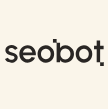Agentic AI Comparison:
Scalenut vs SEObotAI
Introduction
In the rapidly evolving landscape of AI-powered SEO and content creation tools, Scalenut and SEObotAI have emerged as notable contenders. This comparison aims to provide a comprehensive analysis of these two platforms across various metrics to help users make informed decisions based on their specific needs.
Overview
SEObotAI
SEObotAI is a specialized AI tool focused on automating and optimizing SEO strategies, particularly for e-commerce product listings. It offers features like automated product listing optimization, directory submissions, and AI-driven SEO enhancements to improve online visibility and search rankings.
Scalenut
Scalenut is an AI-powered SEO and content marketing platform that offers a comprehensive suite of tools for content research, creation, and optimization. It leverages advanced AI algorithms to assist in generating high-quality, SEO-optimized content while providing valuable insights for improving search engine rankings.
Metrics Comparison
Autonomy
Scalenut: 8
Scalenut offers high autonomy with its AI-powered content creation and SEO optimization tools, including the Cruise Mode for quick article generation. However, it still requires some human oversight for final content quality.
SEObotAI: 9
SEObotAI provides extensive automation for SEO tasks, particularly in product listing optimization and directory submissions, requiring minimal human intervention once set up.
While both tools offer high levels of autonomy, SEObotAI edges out slightly due to its more specialized focus on automating specific SEO tasks.
Ease of Use
Scalenut: 8
Scalenut features an intuitive interface and user-friendly dashboard, making it accessible for users of various skill levels. However, its wide range of features may require some learning time.
SEObotAI: 7
SEObotAI offers streamlined processes for its specific functions, but may require more technical SEO knowledge to fully utilize its capabilities.
Scalenut appears to be slightly more user-friendly overall, especially for those new to SEO and content creation tools.
Flexibility
Scalenut: 9
Scalenut offers a wide range of features covering the entire content lifecycle, from planning and research to creation and optimization, making it highly flexible for various content needs.
SEObotAI: 7
SEObotAI is highly flexible within its specialized domain of e-commerce SEO and product listing optimization, but may be less versatile for general content creation tasks.
Scalenut offers greater flexibility across a broader range of content and SEO tasks, while SEObotAI excels in its specific niche.
Cost
Scalenut: 7
Scalenut offers tiered pricing plans starting from $39/month, which may be considered moderate. Higher-tier plans can be more expensive but offer comprehensive features.
SEObotAI: 8
SEObotAI's pricing is not explicitly mentioned in the search results, but specialized tools often offer competitive pricing for their niche services.
Without specific pricing information for SEObotAI, it's difficult to make a direct comparison. Scalenut's pricing is transparent but may be considered moderate to high depending on the plan.
Popularity
Scalenut: 8
Scalenut has gained significant popularity, with over 1 million users reported and numerous positive reviews across various platforms.
SEObotAI: 6
SEObotAI appears to be a newer or more niche tool, with less widespread recognition compared to more established platforms.
Scalenut seems to have a larger user base and more established presence in the market compared to SEObotAI.
Conclusions
Both Scalenut and SEObotAI offer valuable AI-powered solutions for SEO and content creation, but they cater to different needs. Scalenut provides a comprehensive platform for content marketing and SEO, offering a wide range of features suitable for various content creation tasks. It's particularly strong in its flexibility and ease of use, making it a solid choice for businesses looking for an all-in-one content and SEO solution. SEObotAI, on the other hand, excels in its specialized focus on e-commerce SEO and product listing optimization. It offers high autonomy in these specific areas, making it an excellent choice for businesses primarily focused on improving their e-commerce SEO. The choice between the two would largely depend on the specific needs of the user – whether they require a broad content and SEO platform or a specialized e-commerce SEO tool.

